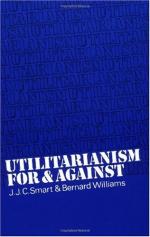|
This section contains 2,192 words (approx. 8 pages at 300 words per page) |

|
Economics is linked to both ethics and the theory of rationality. Economics complements and intersects with moral philosophy in both the concepts it has constructed and in its treatment of normative problems.
Rationality, Utility Theory, and Welfare
At the foundation of economics lies a normative theory of individual rationality. The theory raises no questions about the rationality of ultimate ends and few questions about the rationality of beliefs. It maintains that an agent A chooses (acts) rationally if A's preferences are rational and A never prefers an available option to the option chosen. A's preferences are rational only if they are transitive and complete—that is, A can consistently rank all alternatives. If an agent's preferences are complete and transitive and satisfy some technical conditions, they can be represented by numbers. These numbers, which are arbitrary apart from their order, are "ordinal utilities." If...
|
This section contains 2,192 words (approx. 8 pages at 300 words per page) |

|


